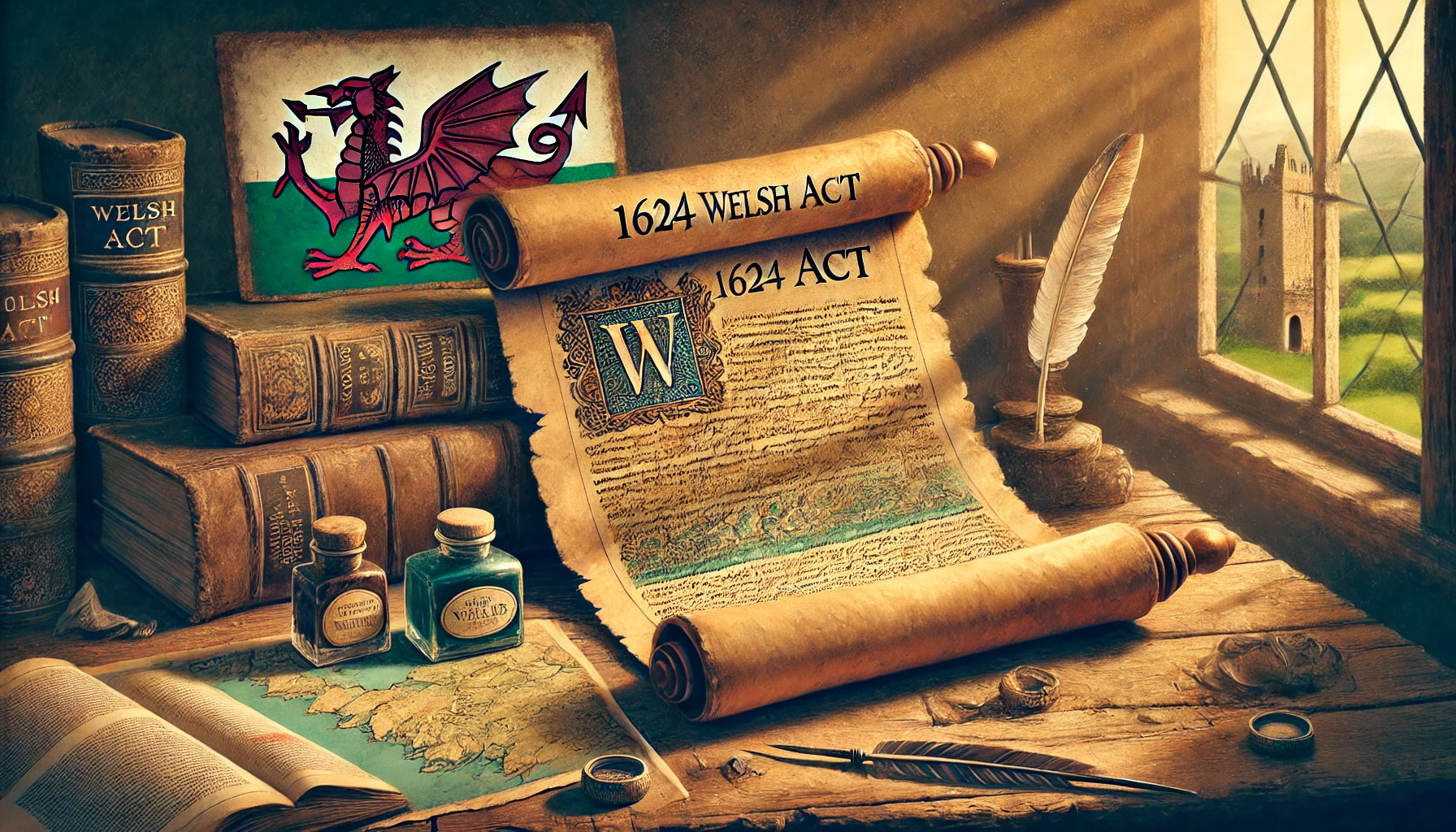1624 Welsh Act: Exploring Its History, Significance, and Impact
The “1624 Welsh Act” is a term often surrounded by ambiguity and historical misinterpretation. While no legislation formally called the “1624 Welsh Act” exists, the year 1624 and its surrounding decades marked significant transitions in Welsh governance, law, and society. This article explores the historical backdrop, legislation from the period, and the enduring cultural resilience of Wales. By diving deep into the era, we aim to unravel the historical context of this often-referenced term.
The Historical Context of Wales in the 17th Century
The 17th century was a transformative period for Wales. Following the Laws in Wales Acts of 1535 and 1542, Wales experienced significant changes in governance, law, and cultural integration. These Acts, passed during the reign of Henry VIII, aimed to unify Wales with England, creating a centralized legal system under English law.
By 1624, Wales was politically integrated into England but remained culturally distinct. The Welsh language thrived among the population despite its exclusion from legal and administrative processes. This tension between legal unification and cultural identity defined much of Wales’ history during this era.
Wales Before 1624: Laws, Governance, and Society
Before 1624, Wales underwent profound changes that shaped its governance and societal structure. The Laws in Wales Acts abolished Welsh legal distinctions, integrating the region into the English legal framework. Welsh counties were restructured to mirror English governance, and English became the language of law and administration.
Despite these changes, Wales maintained a unique cultural identity. The gentry adapted to the new system, while the Welsh language and traditions persisted in daily life. Economic activities like wool production began to expand, creating opportunities despite the overarching control of English laws.
The Laws in Wales Acts and Their Continuing Impact by 1624
The Laws in Wales Acts (1535 and 1542) had been in effect for nearly a century by 1624. These Acts aimed to streamline governance and create a uniform legal system. Key provisions included the appointment of English sheriffs and justices of the peace in Welsh counties, the establishment of county courts, and the abolition of native Welsh laws.
By 1624, these changes had solidified English legal dominance in Wales. While the Acts facilitated administrative efficiency, they also alienated many Welsh citizens. The use of English in legal proceedings excluded a significant portion of the population, creating barriers to justice and governance.
The Statute of Monopolies and Its Relevance to Wales
In 1624, the English Parliament passed the Statute of Monopolies, a landmark law aimed at curbing the Crown’s control over trade and commerce. Though not directly related to Wales, this legislation had implications for Welsh industries.
Key Provisions of the Statute of Monopolies
The Act limited monopolies granted by the Crown, promoting free trade and competition. It also introduced early patent protections, restricting monopolistic practices to newly invented products or processes for a 14-year period.
Impact on Welsh Commerce
For Wales, the Statute of Monopolies encouraged fairer competition in industries such as wool and coal. Welsh merchants, who had previously been disadvantaged by monopolistic practices, benefited from the increased economic opportunities. This legislative shift marked a step towards modern trade systems.
The Role of the Council of the Marches in Welsh Governance
The Council of the Marches of Wales played a pivotal role in Welsh governance during this period. Established to maintain order in the borderlands, the Council oversaw legal and administrative matters in Wales. By 1624, the Council’s influence had grown, but it was often criticized for its bias toward English interests.
Achievements and Limitations
The Council facilitated legal consistency and addressed disputes in the region. However, its dominance by English officials often led to dissatisfaction among the Welsh population. While it served as an instrument of centralized governance, it also highlighted the limited self-governance available to Wales.
Cultural Resilience: How Wales Maintained Its Identity
Despite legislative integration, Wales’ cultural identity endured. The Welsh language remained a cornerstone of daily life, spoken widely across the population. Music, poetry, and storytelling flourished, preserving traditions that had existed for centuries.
Language Barriers in Governance
The use of English in courts and official documents posed significant challenges for Welsh-speaking citizens. Many were unable to fully participate in legal proceedings or access justice, leading to a sense of alienation. However, these barriers also fueled efforts to preserve the Welsh language and cultural heritage.
Economic Changes in 17th-Century Wales
The early 17th century brought economic shifts that affected Welsh society. Agriculture remained the backbone of the economy, but industries like wool production and coal mining began to emerge. These developments created new opportunities for trade and commerce.
The Statute of Monopolies and Economic Growth
The Statute of Monopolies played a role in shaping Welsh industries by promoting competition. Regions known for wool production, such as Montgomeryshire, saw increased demand for their goods. Similarly, the nascent coal industry began to expand, laying the foundation for Wales’ later industrial boom.
Misconceptions and Clarifications About the “1624 Welsh Act”
The term “1624 Welsh Act” often leads to confusion, as no specific law by this name exists. The year 1624 is significant for other legislative milestones, such as the Statute of Monopolies. However, it’s essential to clarify that references to a “1624 Welsh Act” likely stem from historical misinterpretations or an oversimplification of events.
Addressing the Misinterpretation
Understanding the broader legislative context of 1624 helps debunk this misconception. The period’s key laws influenced Wales indirectly, shaping its economic and legal environment without explicitly targeting Welsh governance.
Comparison of Welsh Governance in 1624 vs. Modern Wales
Comparing governance in 1624 to contemporary Wales highlights the profound changes over the centuries. While 1624 saw Wales under centralized English control, modern Wales enjoys a degree of autonomy through its devolved government. The establishment of the Senedd (Welsh Parliament) marked a turning point in reclaiming self-governance.
Legacy of 17th-Century Legislation
The legislative changes of the 17th century laid the groundwork for Wales’ integration into the United Kingdom. However, they also underscored the importance of preserving cultural identity, a struggle that continues to resonate in modern Welsh politics.
Conclusion: Lessons From 17th-Century Legislation in Wales
The “1624 Welsh Act,” though not an official law, represents a significant era in Welsh history. The legislative and economic changes of the time shaped Wales’ integration into English governance while highlighting the resilience of its culture and identity. By understanding the historical context, we can appreciate the complexities of Welsh history and the enduring strength of its people.
As we reflect on the 17th century, it’s clear that the balance between integration and cultural preservation remains a key theme in Welsh history. The legacy of this period offers valuable lessons for modern governance and the ongoing efforts to celebrate Wales’ unique identity within a unified framework.
elsh Act historical illustration depicting its influence on governance and culture in Wales.






